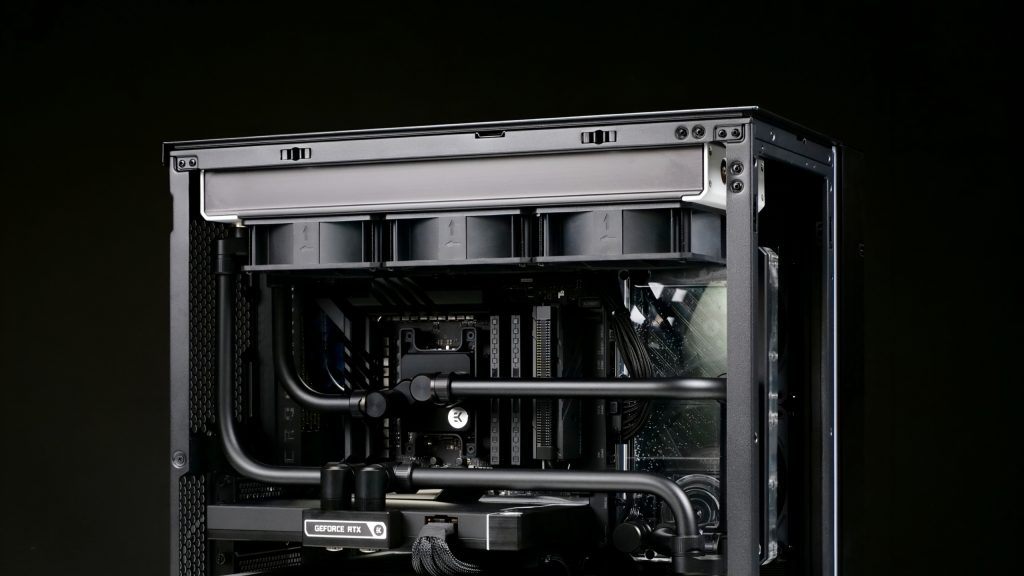How Much Does It Cost To Build A Gaming PC in 2024?
The dream of owning a custom-built gaming PC is powerful, but the price tag can seem equally intimidating. Figuring out how much you’ll need to spend can feel overwhelming with all the various components and ever-fluctuating part prices. But fear not, aspiring PC builder! This blog will be your comprehensive guide to navigating the costs of building a gaming PC in 2024.
We’ll delve deep into the price points of essential components like the CPU, graphics card, RAM, and storage, while also exploring the financial impact of optional upgrades like fancy cooling systems and RGB lighting. Our goal is to equip you with the knowledge to make informed decisions and build a gaming PC that perfectly fits your needs and budget. So, whether you’re a die-hard enthusiast aiming for the most bleeding-edge performance or a casual gamer looking for a solid 1080p experience, we’ll help you build the ultimate gaming rig without breaking the bank.
Gaming On A Budget
The allure of a top-tier gaming PC, with its bleeding-edge graphics card and powerhouse processor, is undeniable. But let’s be honest, those specs often come with a price tag that rivals a luxury car. Fear not, budget-conscious gamers! You can still build a fantastic machine that conquers your favourite titles without sacrificing your entire savings account.
The key is prioritizing your needs. What kind of games do you crave? If esports titles like CS:GO or League of Legends are your jam, you won’t need the same muscle as someone aiming for hyper-realistic graphics in AAA games. Knowing your genre preference is the first step to selecting components that perfectly match your gameplay, not an imaginary budget you don’t have.
Next, consider the resolution you’re targeting. While high-end graphics cards are necessary for smooth 4K gaming, a buttery-smooth 1080p experience at 60 FPS is absolutely achievable on a budget. Don’t get hung up on chasing the latest 8K resolutions if your monitor isn’t even equipped to handle it.
The used market can be your champion. Pre-owned CPUs and GPUs, especially slightly older generations that still pack a punch, offer incredible value. Just be sure to buy from reputable sellers and check for warranty options. Pre-built PC deals can also be a good starting point, especially if you plan to upgrade components down the line.
When it comes to part selection, smart choices are your best friend. Look for CPUs with strong core counts and decent clock speeds. AMD Ryzen 3 and Intel Core i3 CPUs can be great options for budget builds. While the latest graphics cards are tempting, consider last-generation options like the GTX 1650 or RX 580. They’ll still deliver solid performance for many games at 1080p.
For RAM, 16GB is generally recommended for modern gaming. Opt for reliable brands, but don’t get lured into expensive RGB RAM kits – the flashy lights won’t make your games run any faster. Storage is another area where a budget-friendly approach is possible. Consider a combination of a smaller SSD for your operating system and a larger HDD for game storage. This way, you get the speed benefits of an SSD for booting and essential applications, without breaking the bank on storing your entire game library.
Efficiency is your secret weapon. Look for components with lower TDP (Thermal Design Power) ratings. These parts generate less heat, allowing for less expensive cooling solutions – another area where you can save some cash. Don’t forget the vast world of free-to-play games! There’s a treasure trove of fantastic titles out there that won’t cost you a dime. Additionally, many older titles can be optimized to run well on less powerful hardware with some setting tweaks.
Remember, building a PC is a journey, not a destination. You can always upgrade components down the line as your budget allows. By following these tips, you can craft a formidable gaming PC that lets you conquer your favourite games without needing to hit the lottery first.
Higher End Systems
For those seeking the absolute best performance, surpassing even the high settings of demanding titles and achieving smooth frame rates in high-resolution (4K) or high refresh rate (1440p 240Hz+) gaming, then buckle up! Here’s what you’ll need to consider for a higher-end gaming PC:
CPU: Aim for the latest generation high-core-count processors. AMD’s Ryzen 7 7800X3D and Intel’s Core i9-14900K are both fantastic options, offering excellent performance in both gaming and demanding productivity tasks like video editing.
Graphics Card: This is where the real muscle comes in. Nvidia’s GeForce RTX 4080 and RTX 4090, or their new “Super” variants, are the kings of the graphics card castle. These cards can handle 4K gaming with ease, even at high frame rates, and are perfect for enthusiasts who want the absolute smoothest gameplay possible.
RAM: 32GB of DDR5 RAM is the sweet spot for high-end systems. This ensures smooth multitasking alongside your games and future-proofs your build for upcoming titles that may have higher memory requirements.
Storage: A 1TB NVMe PCIe Gen 4 or Gen 5 SSD is practically essential for a high-end build. It offers blazing-fast boot times, near-instantaneous game loading, and can significantly improve overall system responsiveness. Consider adding a secondary hard drive for additional game storage.
Cooling: With all this power comes heat. A high-performance CPU cooler, like a liquid cooling solution, is recommended to keep your system running cool and quiet under heavy loads.
Case: Don’t underestimate the importance of a good case with ample airflow and room for your powerful components. Look for a case with good ventilation and plenty of fan mounts.
The Cost: Expect to spend upwards of £2,000 for a high-end gaming PC. The final price will depend on the specific components you choose and any additional features you may want, like RGB lighting or a pre-built system with a premium case.
Remember, with a high-end system, you’re not just investing in top-tier performance today, but also some degree of future-proofing. This machine should be able to handle even the most demanding games for years to come.




